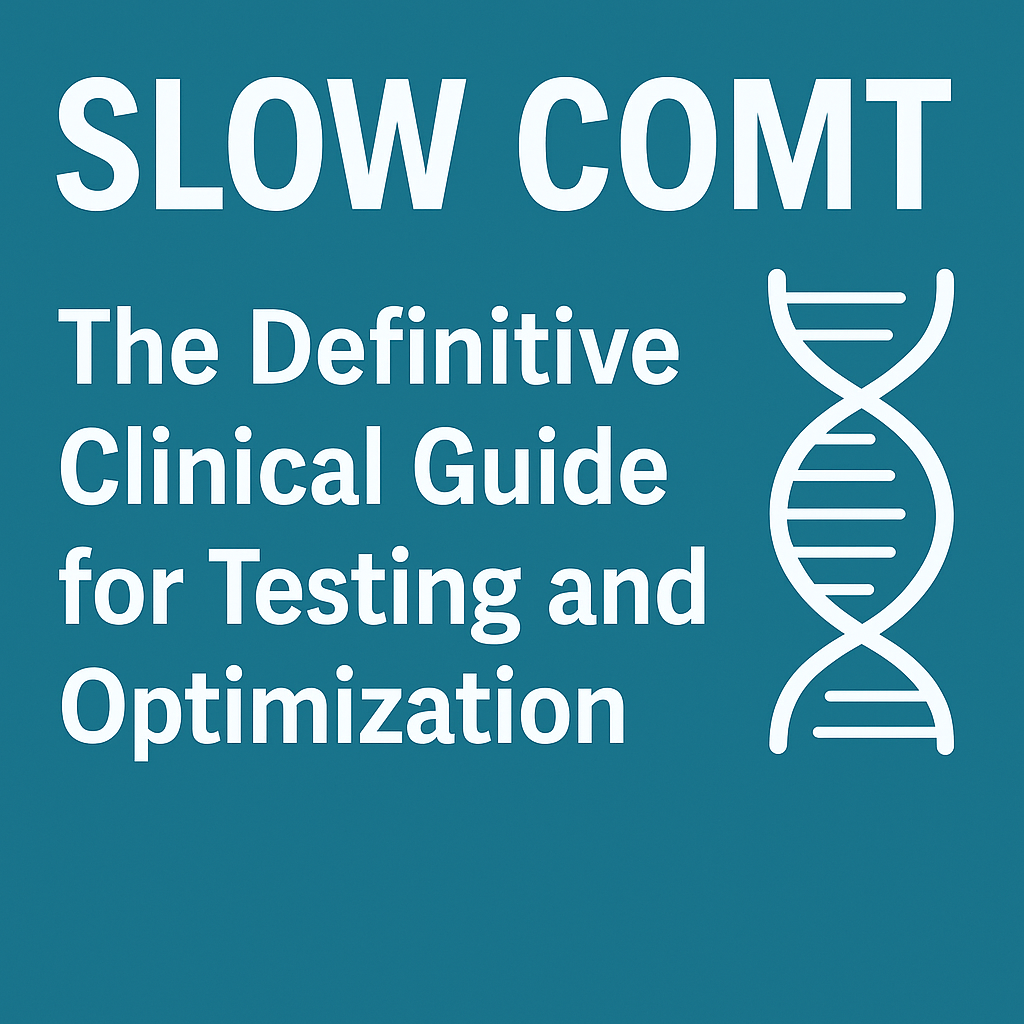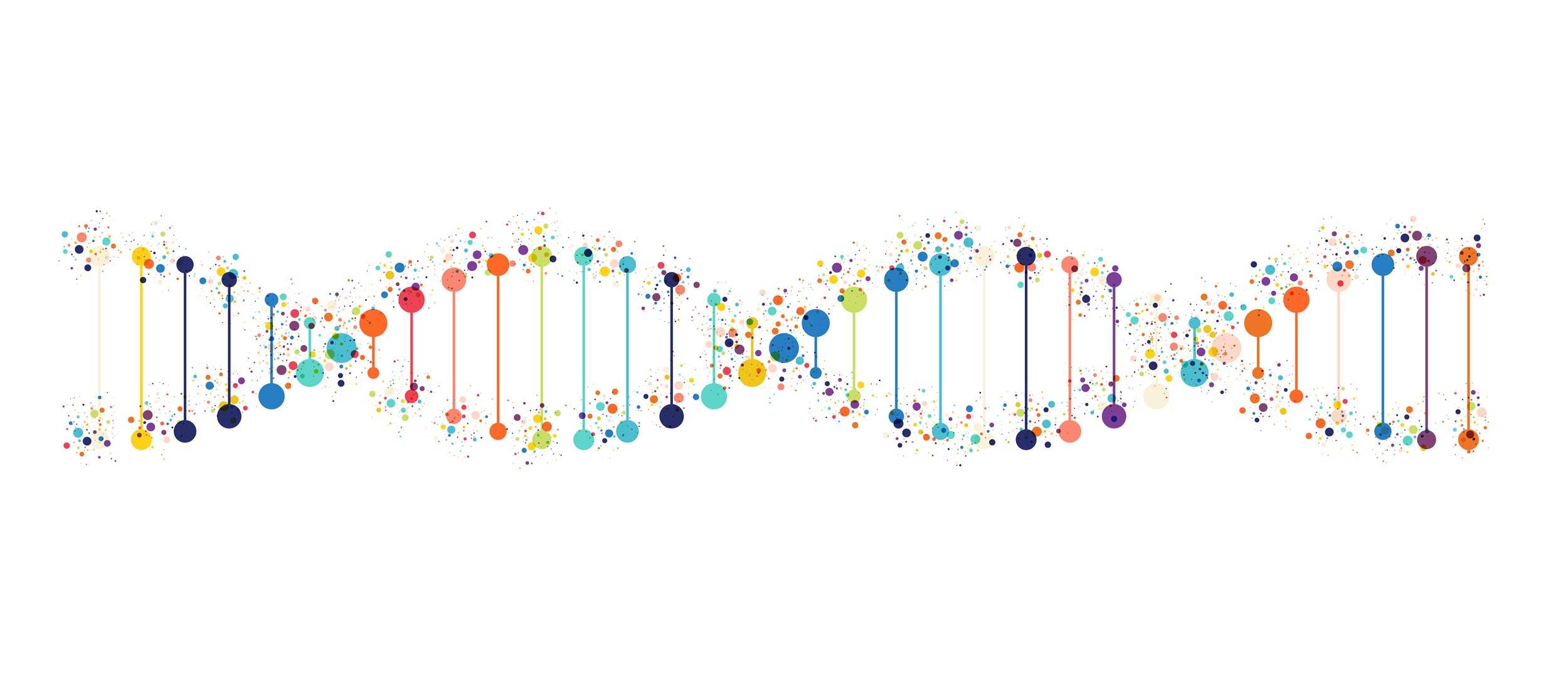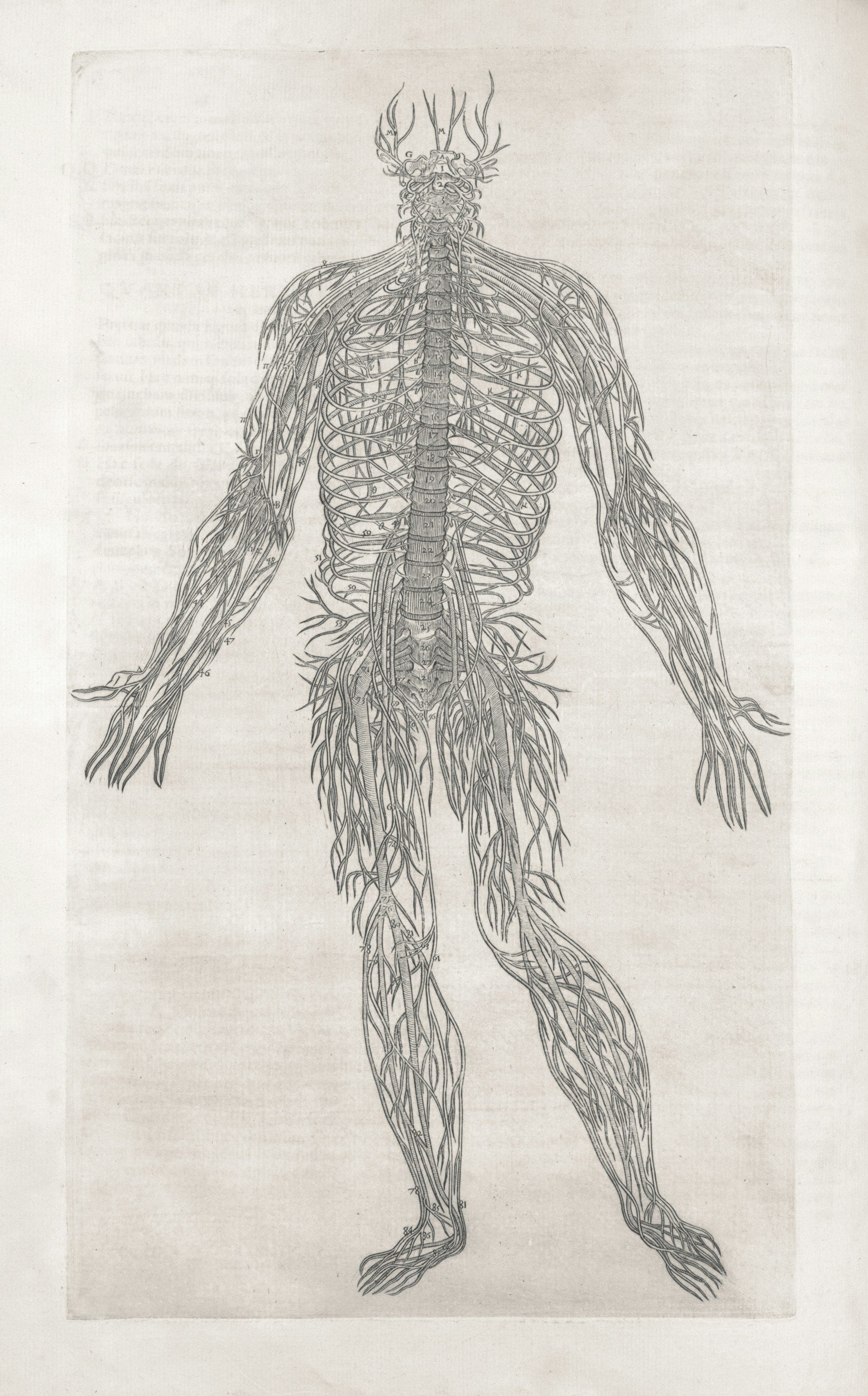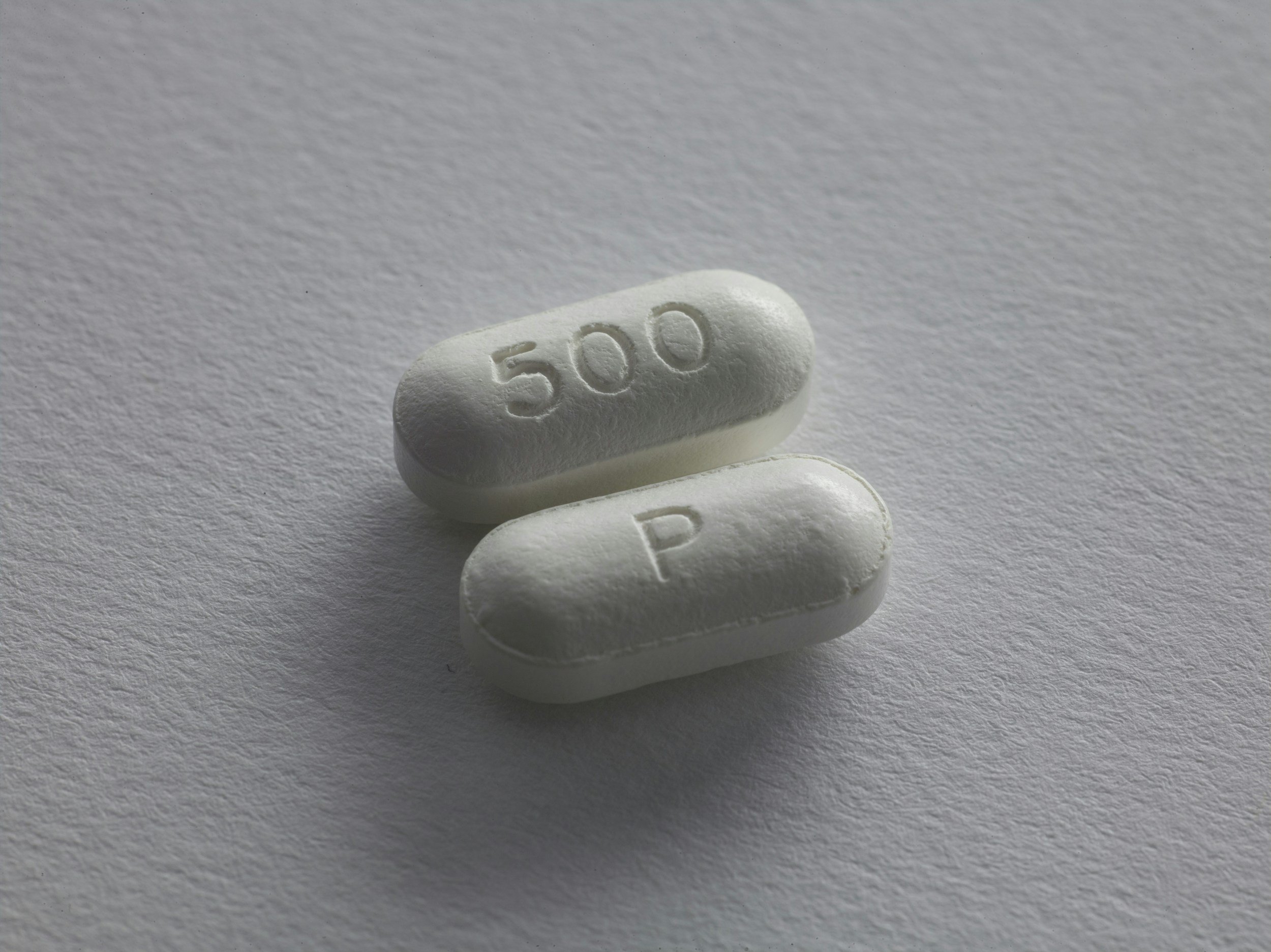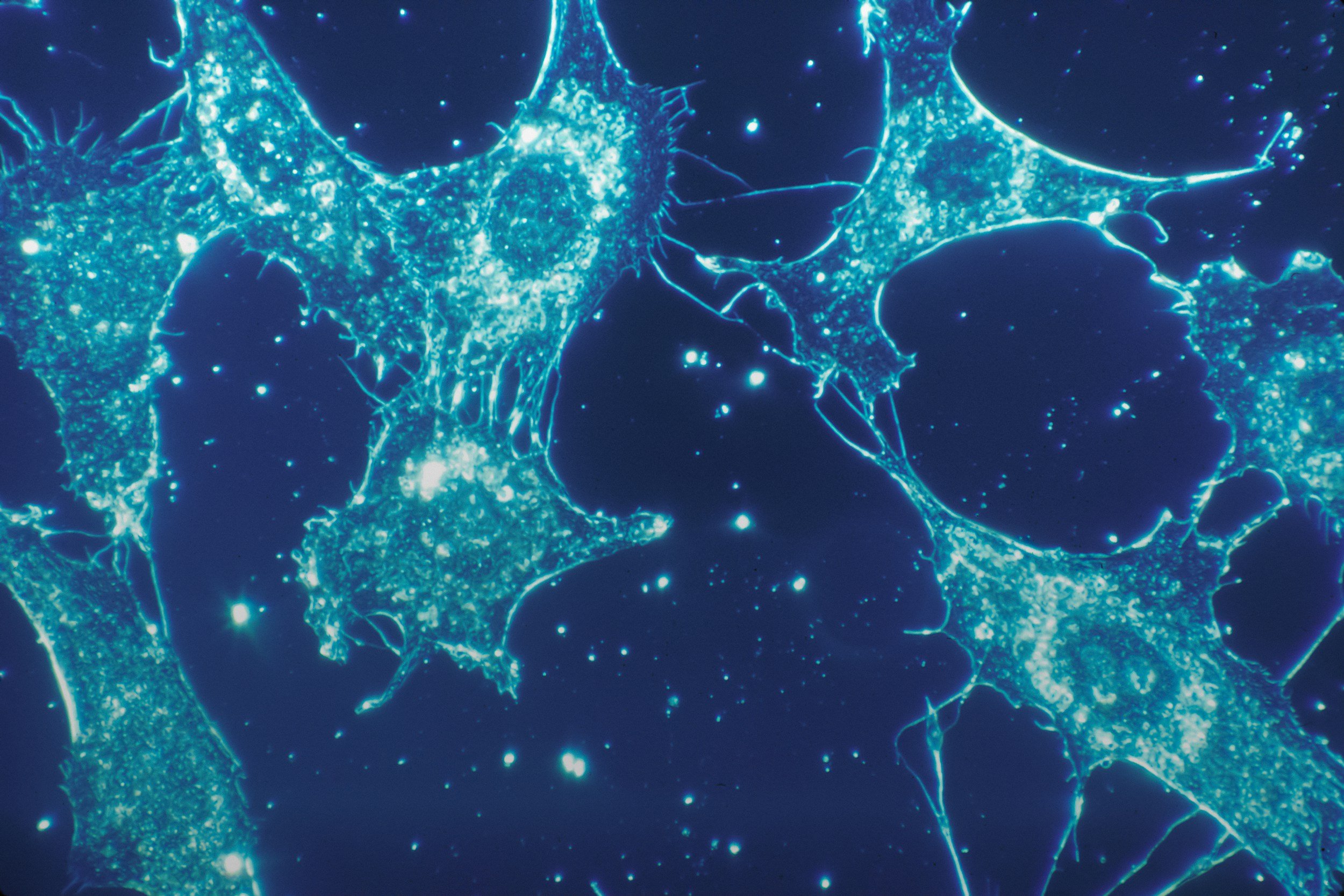What Supplements Should You Take if You Have a COMT Mutation?
There’s been growing interest in the COMT gene recently, given that it can affect things like anxiety, mental fatigue, brain fog, obsessiveness, and breast cancer risk.
First, some background:
COMT (catechol-O-methyltransferase) is an enzyme (encoded by the corresponding gene) involved in breaking down things like dopamine, epinephrine, norepinephrine, and estrogen.
In the brain:
Higher COMT activity means you have lower baseline dopamine levels.
Lower COMT activity means you have higher baseline dopamine levels.
Elsewhere in the body:
Higher COMT activity means you have lower baseline estrogen levels.
Lower COMT activity means you have higher baseline estrogen levels.
This is extremely important, because higher baseline dopamine levels are associated with anxiety, obsessiveness (think OCD), and the like. Similarly, higher baseline estrogen levels are associated with an increased risk for breast cancer.
For a complete breakdown of the symptoms, see: Slow COMT: The Ultimate Clinical Guide to Symptoms, Patterns, and Root Causes — MTHFRSolve
Generally speaking, if you have a “mutation” in this gene, what that really means is that you have an under-functioning polymorphism that is less effective at breaking down dopamine, estrogen, and other metabolites.
Note: If you think your COMT is slow and B vitamins or “dopamine-boosting” supplements make you feel worse:
I’ve developed an EXTENSIVE guide to addressing COMT from the ground up: THE SLOW COMT ROADMAP
This is the single most in-depth resource you’ll find on slow COMT anywhere online.
What should you do about slow COMT? What supplements should you take to deal with this COMT gene “mutation”—at least as some media pundits like Gary Brecka call it? (FYI: I don’t consider “mutation” to be the correct term here. These are genetic variants, not mutations.)
It really depends on what you find on your complete genetic report, but one extremely important aspect is SAMe.
Increasing SAMe is one of the most important factors involved in addressing a slow COMT variant.
COMT function can be effectively increased by increasing levels of SAMe. This is because SAMe itself is a cofactor for the COMT enzyme—this means that COMT actually requires SAMe to attach to it in order to be able to function properly.
Therefore, if you don’t have enough SAMe, your COMT will function even more slowly than normal, which puts you at greater risk of accumulating those activating neurotransmitters.
You can actually take SAMe directly to increase your levels, but I generally don’t advise taking SAMe except in certain rare cases: learn why.
Instead, you need to focus on increasing your body’s built-in production of SAMe. This involves improving the recycling of homocysteine back into methionine using the proper combination of methyl-folate, methyl-B12, choline, betaine (i.e. TMG), etc. depending on your genetic results.
However, if you don’t do this properly, this can put you at risk for overmethylation—an unpleasant situation where your body’s methylation has been ramped up too quickly and in a way that is not tailored to you specifically. That’s partly why worsening symptoms are so common for many people taking methyl-folate and methyl-B12.
It’s generally best to have someone guide you through and to get appropriate testing (or let me produce your supplement plan for you).
The effect of magnesium on the COMT enzyme
Magnesium is another important supplement for people with a slow COMT.
Like SAMe, magnesium is also essential for the function of the COMT enzyme—it also attaches to COMT to help it function properly.
I generally recommend supplementing with magnesium at a minimum of around 400 mg per day. People with slow COMT variants may actually benefit from more than that. Also, avoid magnesium oxide, as it’s very poorly absorbed by the digestive tract (the vast majority of it is excreted out).
I’ve written more about magnesium supplementation in my article: Your Complete Guide to Magnesium Supplementation.
Lithium is also important to supplement with for a slow COMT variant
I like to look at lithium as the lesser-appreciated counterpart of magnesium.
Everyone is supplementing with magnesium nowadays—and for good reason. But few are supplementing with lithium.
But lithium has suffered some of the same changes that magnesium has over the last several decades: There’s been a steady decline in the lithium content of our soil and water—due to new farming practices, filtered water, etc.
Does everyone need to be supplementing with lithium? Like magnesium? (And yes: For the record, I’d say nearly everyone should be supplementing with magnesium in our day; the form and dosage has to be tailored to the individual, however).
Probably not.
But if you have a slow COMT variant, supplementing with lithium does become important.
As far as I know, lithium is not actually a cofactor for the COMT enzyme, unlike SAMe and magnesium, but it does affect the levels of some of the neurotransmitters that the COMT enzyme acts upon—namely, dopamine—and, with time, supplementation with lithium leads to less stress on the COMT enzyme.
Therefore, most people with a slow COMT variant would benefit from lithium supplementation; however, your lithium supplement must be selected carefully.
Lithium is dangerous if overdosed, and supplement manufacturing standards are known to vary hugely between different supplement companies. I recommend researching your supplement brands before purchasing supplements—especially lithium, given the concerns—and be sure to microdose.
(Note: I am not recommending that you supplement with lithium. This article is intended for purely educational and informational purposes. Consult with your own doctor before acting upon any of this information.)
You also may need to avoid certain supplements that inhibit COMT—things like quercetin, for example.
It’s not only about which supplements you should take; it’s also about which supplements you should avoid, as there are a variety of factors that can actually inhibit the COMT enzyme. Those with slow COMT variants would do well to avoid those factors.
Quercetin—the recently popular supplement—is one of those supplements that people with slow COMT variants should avoid, as an example. Read my article on that.
You can read more about how to deal with a slow COMT variant in the other articles I have written, or get direct links to my supplements of choice for slow COMT function:
In the following articles, I discuss in-depth what measures should be taken to help correct a Slow COMT variant:
Slow COMT: The Definitive Clinical Guide for Testing and Optimization — MTHFRSolve
Why I DO NOT Recommend Multivitamins—The Case of Copper — MTHFRSolve
COMT and Protein — The Ultimate Guide to Optimizing Your Protein Intake for Your COMT Variant
Why Caffeine ☕ is Not for Everyone, Genetically Speaking — MTHFRSolve
Want Dr. Malek’s personal help with your slow COMT problem?
Schedule a Free Consultation:
A note from Dr. Malek:
If you’re interested in helping support my work, please consider sharing my website. You can link my blog posts on your social media pages, reddit forums, etc. It’s not easy competing with multimillion-dollar healthcare behemoths, so your help in amplifying a relatively small voice really goes a long way. Thank you :)
~Dr. Malek
Check out Dr. Malek’s other articles:
Keep in mind that this is not official medical advice. No doctor-patient relationship is established through this article or through any other information provided on this website.



